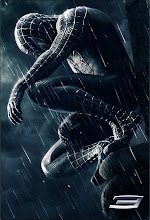Sunday, December 7, 2008
Myth Cowboys vs. Reality Cowboys
Saturday, November 15, 2008
Cival War Postcards
DAY ONE:
This photo shows the day my people became free from slavery. We were now able to freely enlist in the war so I enlisted because I had nationalism for the country who enslaved me. I still wanted to fight for honor and for the Union because i felt they were on my side. Even though i never grew up in the south, I still felt i was a slave trapped in the south so I joined a worthy cause and entered the Union's 54 Massachusetts infantry.
DAY TWO:
This picture signifies the day that I entered the Union's 54 Massachusetts infantry. It would later become the most know black infantry in history. I was really happy when they let me join but i was also burdened because I knew it was going to be some time before they actually let blacks fight in the battles.
DAY THREE:
This picture marks the day I met my commander. His name is Robert Gould Shaw. Even though he was a member of a aristocratic Boston family, he still was down to earth and could help the blacks. I am thankful to have a commander like him, because he was the only one courageous enough to become the commander of a all black infantry. This was my first day with a commander and my first day in training.
DAY FOUR:
Day four and my training is still going on. I wonder if we are ever going to be able to fight. Some captains told us we were only going to be able to do menial tasks like digging trenches or transporting water. Even though I haven't fought yet, i still have seen hundreds of dead bodies. Many of us have died from diseases. More whites have died in total but because you see the blacks dropping off like flies, we have a higher mortality rate. I really hope I get to fight soon.
DAY FIVE:
This will be my last postcard for awhile...... I need some time to think because I finally went into combat. Half my infantry was slaughtered near Charleston, SC. It was at summer in 1863 that half of my buddies and my commander were killed. It was a suicide mission, one that needed a infantry to go in first and make a way for later infantries to go in and win the battle. Me and my fellow soldiers fought with bravery, but I am still traumatized from seeing so many bodies. I am sad to say that my best friend will never get to see his new baby boy. Why can't we just end the war......
